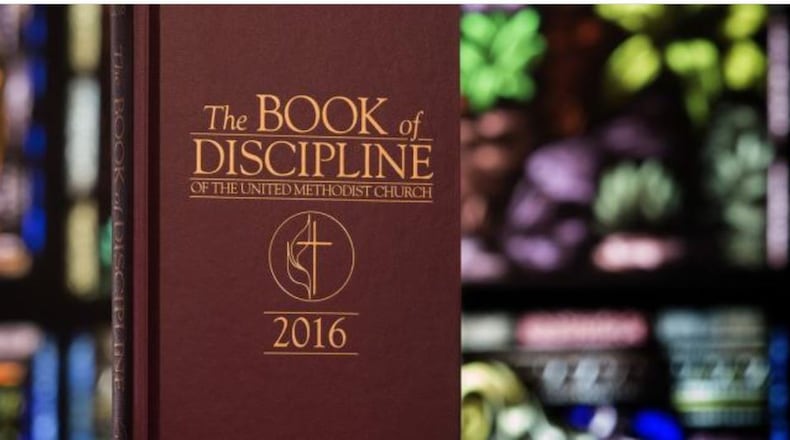The South Georgia Conference of the United Methodist Church will vote Sunday to let 193 churches leave the denomination.
Those churches have already held votes within their congregation to disaffiliate. The next step is for the vote to be ratified during a special meeting, which will be livestreamed on the conference website www.sgaumc.org.
“Sunday will be a day of great sadness in the life of the South Georgia Annual Conference,” Bishop David Graves said in a statement. " We will grieve in saying farewell to the 193 churches disaffiliating from The United Methodist Church and wish them the best in ministry.”
He offered prayers to those leaving and as they “navigate ministry in a new season. I especially want to express my appreciation for the 274 churches who have chosen to remain United Methodist and those who heard my call to refrain from holding discussions around leaving the denomination until we have more information.”
The situation in South Georgia is in sharp contrast to happenings in its northern counterpart.
Earlier this year, roughly 185 churches sued the North Georgia Conference, the board of trustees, its current and former bishop, among others over the right to vote on the issue of disaffiliation.
At issue was a “pause” from the North Georgia Conference that temporarily halted requests to leave, citing “factually incorrect and defamatory” information circulating about the process for disaffiliation.
The judge ruled that the churches should be allowed to continue the process and be able to vote.
Across the nation, so far this year hundreds of churches have left the denomination, most of them traditional, many over differences in authority of Scripture, and cultural issues such as abortion , same sex marriage and fears that the denomination will become too progressive.
According to the United Methodist News Service, once South Georgia takes a vote on Sunday and if all 193 are ratified, there will be 3,549 - or 11.6% - of congregations across the entire denomination who have completed the required steps disaffiliated under paragraph 2553 since 2019.
The issue of the ordination of non-celibate gay clergy and same sex marriage, for instance, has been brewing for decades.
“The fracturing we’re seeing in broader American society, in general, is also reflected in the divisions in American denominations,” said Bryan J. Whitfield, chairman of the Columbus Roberts Department of Religion at Mercer University.
It’s a long-term trend in American Christianity, he said.
The “brokenness” today in society and the church runs parallel to what happened years ago over the issue of slavery, he said.
“In the 20th and 21st century the two issues have been the role of women in leadership and the LGBTQ issue of inclusion for some denominations. The Methodists are not splintering over the issue of women....I will say there are certainly other issues as well, but that’s the LGBTQ issue that around which there has not been any closure.”
Churches that are disaffiliating have to meet certain financial obligations as part of the agreement. Once ratified, the church is transferred ownership of the property.
Even with the loss, Graves said he had hope for the future of the conference.
" While we may be smaller, numbers do not tell the full story or define our ability to bear witness to the Good News of Jesus Christ. I believe we will be stronger as we focus on reaching new people with the gospel message.”
There is not expected to be any opposition to the disaffiiations, said Kelly Roberson, director of communications for the conference.
After those churches leave, the South Georgia Conference of the United Methodist Church will be left with 274 churches. The conference, based in Macon, covers an area south of Columbus, Macon and Waynesboro.
Most of those churches are in rural areas. At the end of 2022, membership stood at more than 76,000.
According to the South Georgia Conference, steps are already being taken to start new congregations and ministries in areas where current United Methodist congregations are leaving.
John Lomperis, director of UM Action, said the pause in North Georgia, , “was an extreme version of denominational officials panicking when they realized that if we move the train in the direction we want, a lot more people will want to get off the train than we realized.”
Lomperis, who currently lives in Oregon and describes himself as a traditionalist, said
While the issue of same sex marriage and ordination of non-celibate clergy are “genuine” reasons churches are leaving, there are bigger issues.” He believes many of the denomination’s leaders have “strayed over historic Methodist doctrine over the authority of the Bible and doctrine about Jesus Christ.”
About the Author




